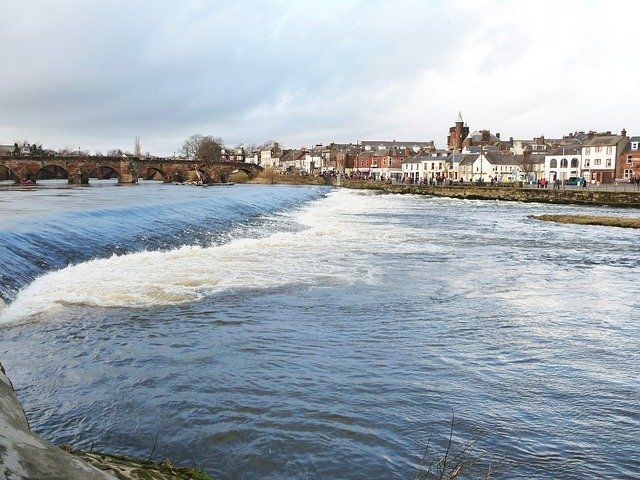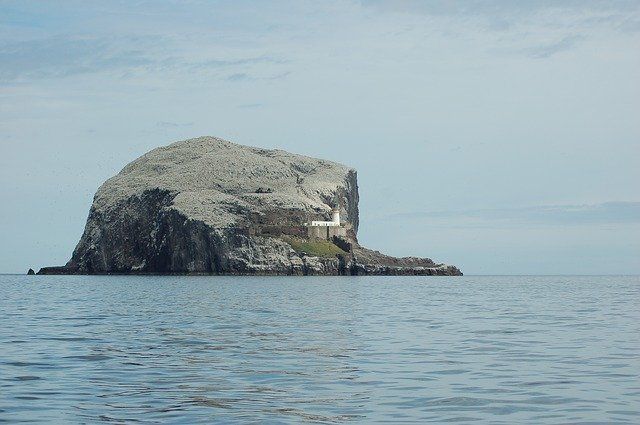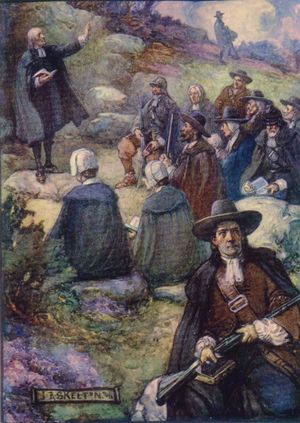A frightened child was lying face down in the loft of his home. With one eye glued to a chink in the floorboards, he was watching with horror the scene being enacted in the room below. With bared swords soldiers were slashing through furnishings and thrusting their weapons into every conceivable hiding-place. Together with his mother, brothers and sisters the boy had fled to the loft as brutal-looking men had burst into their home searching for his father, John Blackadder. Suddenly ‘a murdering ruffian’, as the child was later to describe him, glanced up and caught sight of the bright little eye gazing down at him. Without a second thought he lunged upwards with his sword, only missing the chink in the floorboards by less than an inch. October 1662 was a dark month for the Church of Jesus Christ in Scotland, comparable only to Black Bartholomew’s Day in England two months earlier. Then 2000 English pastors and teachers had been evicted from their livings for their unwillingness to comply with the terms of the Act of Uniformity. Now 400 Scottish preachers had also refused to accept the demands of a similar act which required them to seek re-ordination at the hands of the bishops. These men chose poverty, homelessness, suffering and even death rather than the path of compromise.
John Blackadder, whose nine-year ministry near Dumfries had been marked by signal blessing among his rural parishioners, continued preaching throughout that October. But on the last Sunday of the month, as he was warning his people against the danger of accepting false teaching from any hireling pastor who might fill his pulpit after he had gone, news came of the approach of the king’s dragoons commissioned to arrest the bold preacher. His congregation wept as Blackadder speedily found cover in some nearby home.
Unable to track down their quarry at his church, the dragoons then proceeded to ransack his home. And now, with their hiding-place discovered, his wife and young family were roughly thrown out of the house. Placed in large panniers on each side of a horse, the children were taken off to find shelter in some nearby town.

Never again would John Blackadder and his family enjoy a settled life together. A marked man, he would be hunted night and day as an enemy of the State for his persistence in ministering to the spiritual needs of the people, now bereft of their pastors. Cautiously at first, but then with increasing boldness, Blackadder and other men who became known as the ‘field preachers’ would appoint a secret location where services were to be held. Quietly the information spread from hamlet to farmstead. Men, women and children would slip silently from their homes and gather in many a hidden wood and glen to hear the words of life from these true shepherds of Christ’s flock.
Pressed for space on one occasion, Blackadder’s congregation, meeting in the Woods of Dundonald, climbed the trees until the great branches groaned under the weight of his eager hearers. And always a look-out would be posted to give early warning of any approach of the king’s dragoons. Not only could the preacher suffer imprisonment and even death if he were caught, but the people too could face torture, prohibitive fines and sometimes banishment for hearing or harbouring the evicted preachers. A moving and powerful preacher, Blackadder would console his listeners by reminding them of the ultimate victory of the Son of God over all his enemies. Equally he would woo the undecided to embrace the suffering Saviour by faith to the saving of their souls.
Each time he ventured out to preach he took his life in his hands. Who could tell whether someone in his congregation would betray him? Hiding in the woods and hamlets of Galloway, he outwitted his captors on many occasions even though there was a high reward offered for his arrest, alive or dead. Following some tip-off, the dragoons would swoop down only to discover that Blackadder was nowhere to be found, until his elusiveness earned him the nickname of ‘Guess-Again’.

But four years after his eviction his family suffered once more when their retreat was discovered. Again Blackadder himself was absent for rarely did he dare to sleep at home. Breaking in, the dragoons smashed furniture, killed the poultry, pierced curtains and bedclothes until one distressed child fled out into the night wearing only his night shirt. For half a mile the ten-year-old stumbled through the darkness until he came to the village cross. Here he clung, and then fell fast asleep. ‘O my puir bairn,’ exclaimed an old woman early next morning when she discovered the lightly-clad figure. ‘Come in and lie down in my warm bed.’ After this Blackadder moved his family to the relative safety of Edinburgh, although this meant his brief visits would necessarily be less frequent.
Now he knew his time could be short. Throwing aside his earlier caution, Blackadder bought up every opportunity to minister to a needy people. The records of the times abound in references to the presence of this intrepid preacher in Galloway, Fifeshire, the Lothians and the Borders. A notable celebration of the Communion took place in 1670 in Dumfriesshire. In a secluded meadow by a river with the wooded hills rising up behind, the vast congregation, estimated at over 300 gathered to listen to Blackadder, Josiah Welsh and other field preachers. Here they ate and drank the memorials of Christ’s atoning sacrifice. Rough stones formed the Communion tables at which the people sat down in orderly groups: a day never to be forgotten, it was marked by an unusual sense of the presence of Christ. ‘Our souls breathed in a diviner element and burned upwards as with the fire of a pure and holy devotion,’ wrote Black-adder later.
But he was caught at last. On 5 April 1681, after almost twenty years of field preaching, his vigilant enemies were awaiting him when he paid a brief clandestine visit to his family. Dragged before the ruthless General Dalyell, Blackadder asked if he might speak in his own defence. ‘You have spoken too much,’ was the callous reply, ‘I would hang you with my own hands.’ No fair trial was afforded to this honourable servant of Jesus Christ as he was hustled off to prison on the Bass Rock.

Purchased for the Crown in 1671, this storm-beaten rock situated in the Firth of Forth was a fortress from which none could escape. Only a third of a mile in diameter, it afforded little protection from the elements. Thirty-feet waves would pound against the prison walls, while the roar of wind and sea would reverberate around that lonely stronghold. The only consolation for John Blackadder was the presence of like-minded men with whom to share both his meagre rations of dried fish and oatmeal, but more importantly, the common consolation of a refuge and a glory beyond the pain and suffering of their earthly lot.
Blackadder, now well into his sixties, soon found his health deteriorating under the strictures of foul damp cells and little recreation. His once powerful frame became bowed by rheumatism, and reduced by dysentery which he contracted from being obliged to drink melted snow in winter and water from stagnant rock pools in summer. For five years this stalwart Covenanter languished on the Bass Rock. Eventually a petition for his discharge was granted. But it was too late. Constant even in death, he was heard to declare, ‘The Lord will yet arise and defend his own cause and subdue all his enemies.’ And on 3 December 1685 Black-adder was released at last from his cramped unhealthy cell and gnawing pain into the freedom of the city of God: ‘a glorious and triumphant martyr for the name of Jesus’, as one of his sons later wrote.




